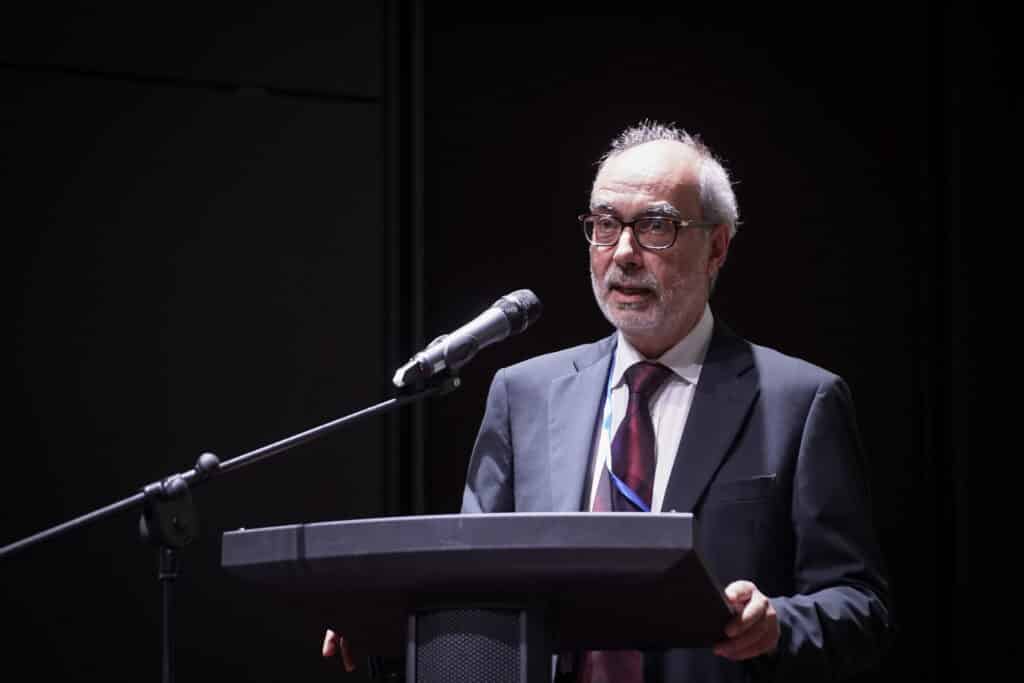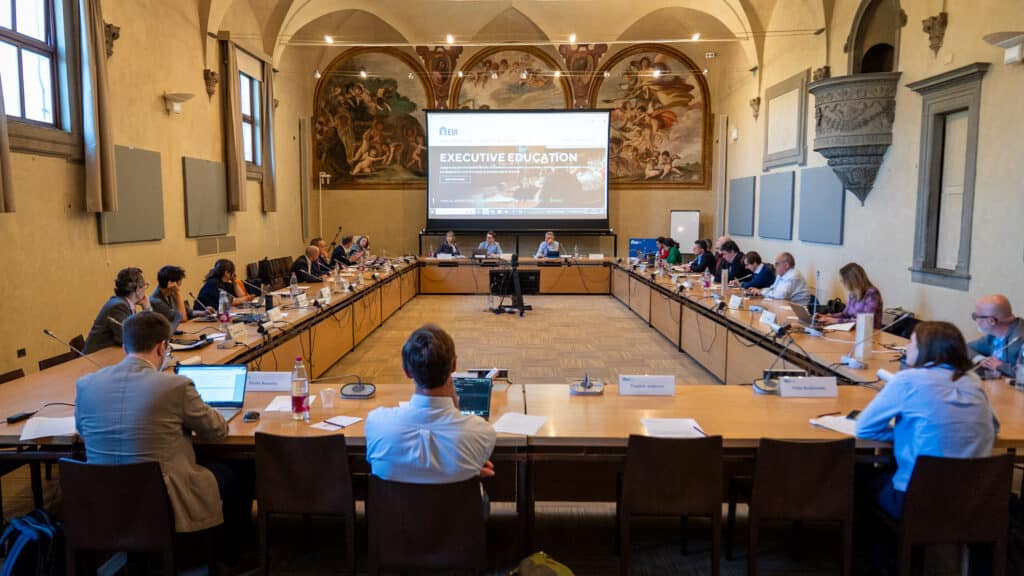How mitigating methane emissions can help the EU to reach energy independence
This is the third instalment of the Topic of the Month: Reacting to the new energy landscape
Europe is facing the worst energy crisis since the 1970s. The spiking energy prices and worries about reliable supply fueled by the Russian invasion of Ukraine have revived discussions and calls to end the EU’s dependence on fossil fuel imports from Russia. Achieving the EU’s energy independence will require considerable effort and time.
One of the immediate options is to increase efforts to avoid methane emissions in the fossil fuels’ value chain. The size of globally emitted methane is comparable with the EU imports of natural gas from Russia. The Middle East and North Africa region alone could provide consumers with 20 billion cubic meters (bcm) of natural gas if all methane leakages were avoided. Besides oil, gas and coal, bioenergy is also starting to be a substantial source of methane emissions.[2] These facts make one thing clear: the same measures that could help to solve the energy crisis will also alleviate the climate one.
The proposed EU Methane Regulation targeting energy-related emissions[3] will provide an essential regulatory tool both for limiting climate change and increasing efficiency in the use of fossil fuels. The EU is not a significant producer of fossil fuels, but it is one of the most important consumers. As a result of that, the EU is one of the world’s largest importers of oil and gas. The draft Regulation demands full transparency of the methane emissions associated with the fossil fuels imported into the EU. This requirement will provide an incentive for major producers to avoid methane leakages, flaring and venting, also through dedicated initiatives involving technical assistance for partner countries, such as the recently announced ‘You collect/We buy schemes’.[4] But the EU’s ambitions extend beyond the fossil fuels’ sector.
In mid-May 2022, the European Commission unveiled the REPowerEU strategic document, enlisting measures to both drastically reduce the EU’s dependence on Russian fossil energy supplies and accelerate the clean energy transition. Among those measures, the Commission has suggested over a tenfold increase in the domestic production of biomethane, from the current 3 bcm to 35 bcm by 2030, doubling the biomethane production target indicated in the Fit for 55 Package, published in summer 2021. The document highlights the importance of producing biomethane from sustainable sources, mainly agricultural residues and biowaste.
To achieve this objective, the Commission identified several measures in the REPowerEU Plan: to establish industrial biogas and biomethane partnerships, encourage the establishment of energy communities, provide incentives for biogas upgrading into biomethane, promote infrastructure upgrading, R&D funding and simplified access to finance via Connecting Europe Facility (CEF), Cohesion Policy, Recovery and Resilience Facility (RRF) and the Common Agricultural Policy.
Although higher gas prices could incentivise biomethane production in the short term, additional measures will be necessary to reach the ambitious 2030 target. To make biomethane more cost-competitive vis-à-vis natural gas in the longer term, the International Energy Agency (IEA) has suggested putting a value on avoided methane emissions. Some jurisdictions already allow for such possibility, i.e. offsets generated by installing the anaerobic digesters can be used for compliance under the California-Québec Cap-and-Trade system.
This could be an interesting option for the EU’s contribution toward achieving the Global Methane Pledge (GMP). Such a pledge seeks a 30% reduction by 2030 compared to 2020 levels across all man-made sources of methane. Agriculture and waste are the major sources of methane emissions in the EU, accounting for almost 80% of the total. Moreover, boosting the biomethane production from agricultural wastes and residues would also help reduce GHG emissions in these sectors, which for the time being have not been at the forefront of the EU climate efforts. And a further reduction in these sectors will be necessary to achieve EU climate targets.
The EU circular economy strategy has already recognised an essential role of biomethane production via anaerobic digestion in reducing GHG emissions. Hence, the EU circular economy framework could help boost biomethane production by alleviating energy security concerns. But it requires better policy coordination in four focus areas: (a) the development of a measurement, reporting and verification system of methane emissions from the agriculture and waste sectors; (b) continual improvement of best practices to mitigate methane emissions, e.g. by introducing further requirements concerning landfill gas management; (c) production of biomethane from sustainable sources; and (d) responsible operation of biomethane plants minimising potential methane leaks.
The accelerated transition to the circular economy could help address climate change threats and energy security concerns. Achieving the European Green Deal will not be possible without reducing the methane emissions dominating GHGs in the agriculture and waste sectors. Captured methane could also provide a clean source of EU-produced energy. While some regulatory steps were already made in the waste sector in the 1990s, in the agriculture sector, there is still much to be done.
Notes
[1] The article is based on the recent FSR Policy Brief written by the authors: Olczak, Piebalgs (2022) Energy security meets the circular economy: a stronger case for sustainable biomethane production in the EU. Issue 2022/34, April 2022.
[2] Global Methane Tracker 2022, IEA.
[3] Proposal for a regulation of the European Parliament and of the Council on methane emissions reduction in the energy sector and amending Regulation (EU) 2019/942, COM/2021/805 final.
[4] JOINT COMMUNICATION TO THE EUROPEAN PARLIAMENT, THE COUNCIL, THE EUROPEAN ECONOMIC AND SOCIAL COMMITTEE AND THE COMMITTEE OF THE REGIONS EU external energy engagement in a changing world. JOIN(2022) 23 final. Brussels, 18.05.2022.






